High-Level Dialogue: WSIS +20 – WSIS Beyond 2025
WSIS
Session 476
Through the Summit’s first phase in 2003, a framework for an inclusive information society was created as set out in the Geneva Plan of Action. Since 2015, the WSIS Process and the 2030 Agenda for Sustainable Development are being aligned by stakeholders to integrate information and communication technologies (ICTs) into their approaches in implementing the activities/initiatives to support the implementation of the 2030 Agenda.
The WSIS Forum has proven to be an efficient medium for coordination of multistakeholder implementation activities, information exchange, creation of knowledge, sharing of best practices and continues to foster partnerships to advance development goals.
In 2015, the UN General Assembly Overall Review resolved to hold the WSIS Forum on the annual basis till 2025. WSIS+20 will provide opportunity to reflect and discuss on the evolution of the WSIS implementation process. It will review what has been achieved in the first quarter of the century, what has failed, what lessons has been learned and how to fulfil the vision outlined by WSIS almost 20 years ago of the information and knowledge societies where everyone can benefit from the opportunities that ICTs can offer.
This session will discuss the importance of the WSIS process and to shed more light on the evolution of WSIS through highlighting the achievements in the WSIS Action Lines implementation, and concluding with reflections on what we can learn from the WSIS experience towards the digital future.
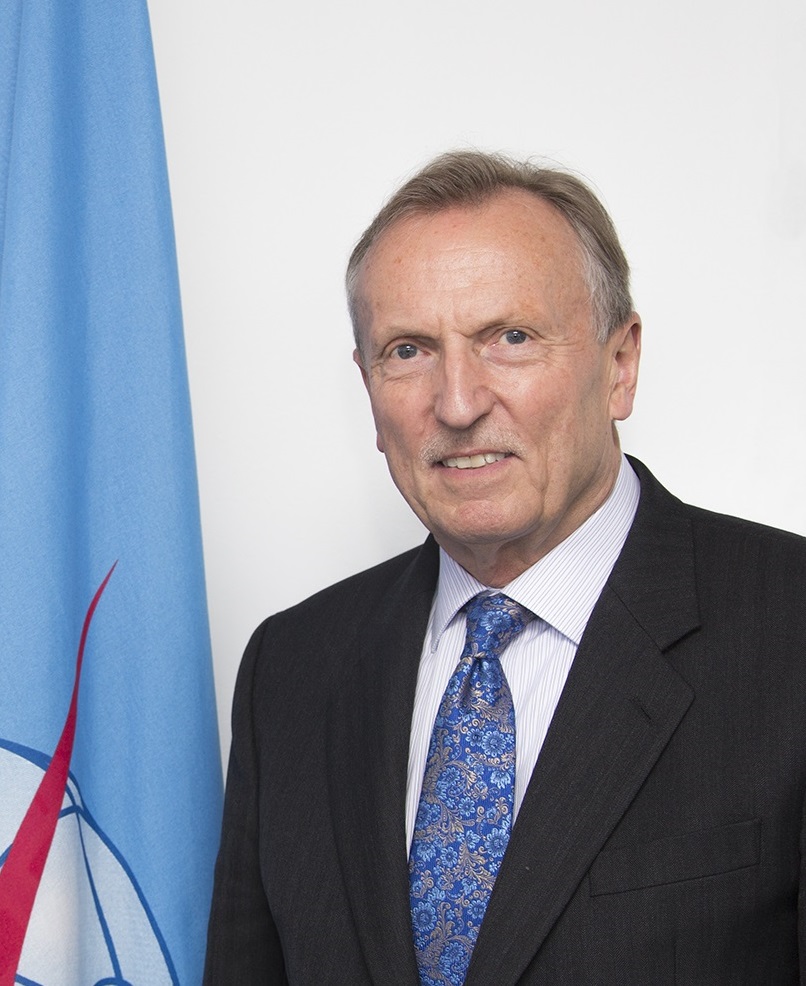
Malcolm Johnson is a seasoned information and communication technology (ICT) executive who has served in senior management positions at the International Telecommunication Union (ITU) since 2007. Prior to his election as Deputy Secretary-General, he was Director of ITU’s Telecommunication Standardization Bureau.
Earlier, he served as International Coordinator at the United Kingdom’s Office of Communications (Ofcom), with chief responsibility for UK engagement with ITU and international regulators. As Director of the UK Radiocommunications Agency until 2003, he also acted as the European Coordinator for several World Radiocommunication Conferences.
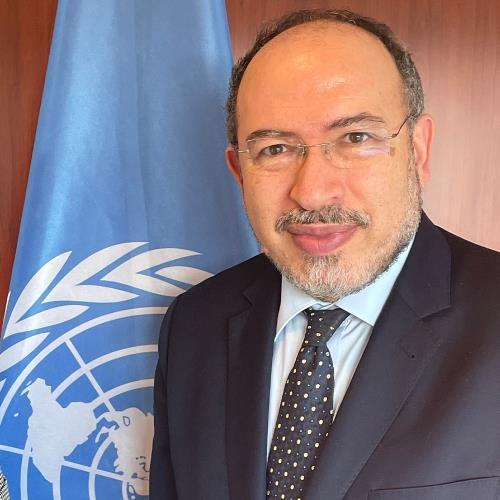

Dr. Shamika N. Sirimanne is the Director of the Division on Technology and Logistics of UNCTAD. She leads UNCTAD's work on science, technology, and innovation (STI), including e-commerce and the digital economy. She serves as the Head of the Secretariat of the UN Commission on Science and Technology for Development, the focal point of the UN on STI policy. She also leads the preparation of UNCTAD flagship publications, Digital Economy Report and the Technology and Innovation Report. In addition, she is responsible for UNCTAD's trade logistics programme, including its largest technical cooperation programme that helps develop digital platforms for e-government initiatives.
Ms. Sirimanne served as Director of the ICT and Disaster Risk Reduction Division of the UN Economic and Social Commission for Asia and the Pacific (ESCAP), where she spearheaded major regional cooperation programmes. Among them are the Asia-Pacific Information Superhighway initiative for seamless broadband connectivity, and the Regional Drought Mechanism for providing early warning through space applications.
Prior to that, Ms. Sirimanne was with the UN Economic Commission for Africa (ECA), where she led the economic policy team and the Economic Report on Africa, the flagship publication of ECA. She has also worked for the Canadian Department of Finance and the World Bank. Ms. Sirimanne holds a PhD in Economics.
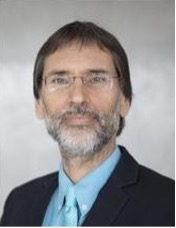
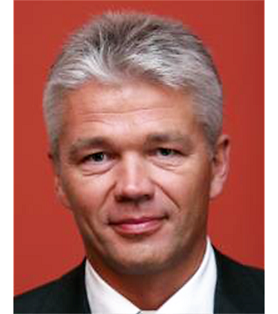
Ambassador Janis Karklins currently is the Permanent Representative of Latvia to the Council of Europe. In more than 30 years of diplomatic career he also has served as the Permanent Representative of Latvia to the United Nations at Geneva (twice), Latvian Ambassador to France, Andorra, Monaco and UNESCO, the Director of the NATO Center of Excellence for Strategic Communications, as well as the Assistant Director General of Communication and Information of UNESCO.
During his first stay in Geneva (2000 - 2007) he presided over the Preparatory Committee of the Tunis Phase of the World Summit on the Information Society (2004-2005). During the second tour in Geneva (2015 - 2020) he chaired the WIPO General Assembly, the UN Economic Commission for Europe, CCW 2018 meeting of High Contracting Parties, the ATT 2019 meeting of the States Parties, and 2020 GGE LAWS in the framework of CCW.
Ambassador Karklins chaired the Governmental Advisory Committee of ICANN from 2007 until June 2010, at the same time being the GAC liaison to the ICANN Board of Directors. In 2014 the UN Secretary General appointed Ambassador Karklins to be the Chair of the Multi-stakeholder Advisory Group of the Internet Governance Forum for two year term.
Ambassador Karklins holds an engineering degree from the Riga Technical University and attended an Executive Education Program for Eastern European diplomats at the Hoover Institute at Stanford University.
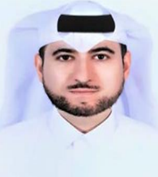
Dr. Khalid have been involved in leading many programs and projects initiatives for more than 15 years locally and internationally.
In 2020, he been appointed to be the Director of Information Systems & Advisor of President Office at the Planning & Statistics Authority.
In 2017, he led the advancement of knowledge systems as a Director of Knowledge and Innovation Systems at Qatar Foundation Research & Development.
In 2016, he earned from Massachusetts Institute of Technology (MIT - in United States of America) the highest Executive Education Certificate named “The Advanced Certificate for Executives in Management, Innovation, & Technology”.
In 2013, he led a unique project at Massachusetts Institute of Technology (MIT) as a Visiting Scholar and Director of the Science, Technology and Innovation project.
As from 2008 to 2013, he managed a huge national strategic initiative to advance human capacity in Qatar by being a Director of funding programs at Qatar National Research Fund (QNRF) - member of Qatar Foundation.
Dr. Khalid earned his PhD degree from United Kingdom, and his interested work topics related to: Information Technology and Systems, Data Governance, informatics, knowledge Management, EGovernment Solutions, Strategic Planning and Leadership, Research, Development and Innovation.
.jpg?maxwidth=500)
Mr. Jorge Cancio is Deputy Director of the International Relations Team at the Federal Office of Communications (OFCOM), Switzerland.
As such he has strategic, managerial and coordination duties and represents Switzerland in a number of international fora, and processes related to Internet Governance, digital cooperation, data governance and artificial intelligence. In this regard, Mr. Cancio notably participates in UN, UN Commission on Science and Technology for Development (CSTD), UN IGF, Eurodig, Council of Europe, European Union High Level Group on Internet Governance, the UN Roadmap for Digital Cooperation and follow-up work, the Geneva Internet Platform, the Internet and Jurisdiction Policy Network, the Swiss IGF or the Governmental Advisory Committee (GAC) to the Internet Corporation for Assigned Names and Numbers (ICANN).
Prior joining OFCOM in 2015, Mr. Cancio held different senior policy advisor positions within the Spanish Administration, in the fields of Copyright, Internet Law and Policy, including Internet intermediary liability, Open Data, Internet Governance, and Telecommunications. He holds a law degree from the Universidad Autónoma de Madrid as well as an LL.M. from the Benjamin N. Cardozo Law School, New York. Mr. Cancio is fluent in Spanish, English and German, and has a working knowledge of French.
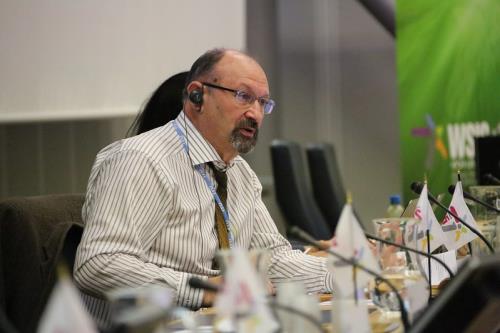
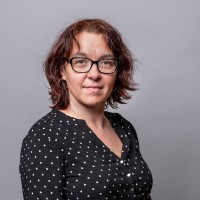
Kamelia, holding an MBA, has in-depth experience in executive administration of non-profit organisations. She is also a lawyer, specialized in Swiss law relevant to international organisations and international public law, including expertise on the United Nations intergovernmental bodies.
Before joining the Geneva Cities Hub, Kamelia was namely Executive Manager at the Geneva Academy. Before this she worked as Special Assistant to the President of the UN Human Rights Council for three years. She was also a Visiting Programme Director at Wilton Park. Previously to that, she also worked at the Swiss Ministry of Foreign Affairs and the Permanent Mission of Switzerland to the UN Office at Geneva. In 2002, she was part of the Office of the UN High Commissioner for Human Rights in New York.
Kamelia, titulaire d'un MBA, possède une expérience approfondie de l'administration exécutive d'organisations à but non lucratif. Elle est également avocate, spécialisée dans le droit suisse pertinent pour les organisations internationales et le droit public international, y compris une expertise sur les organes intergouvernementaux des Nations Unies.
Avant de rejoindre le Geneva Cities Hub, Kamelia était notamment Executive Manager à la Geneva Academy. Auparavant, elle a travaillé comme assistante spéciale du président du Conseil des droits de l'homme des Nations Unies pendant trois ans. Elle a également été directrice du programme invité à Wilton Park. Auparavant, elle a également travaillé au ministère suisse des Affaires étrangères et à la Mission permanente de la Suisse auprès de l'Office des Nations Unies à Genève. En 2002, elle faisait partie du bureau du Haut-Commissariat des Nations Unies aux droits de l'homme à New York.
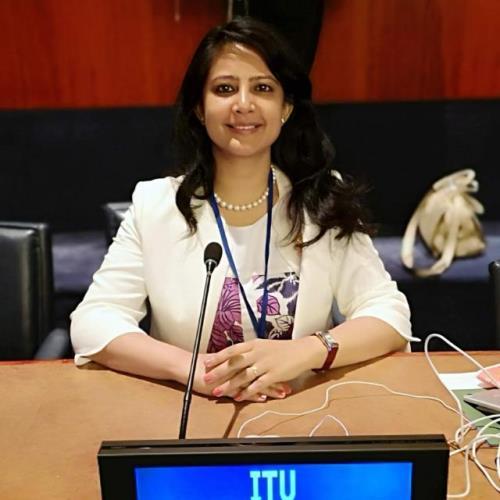
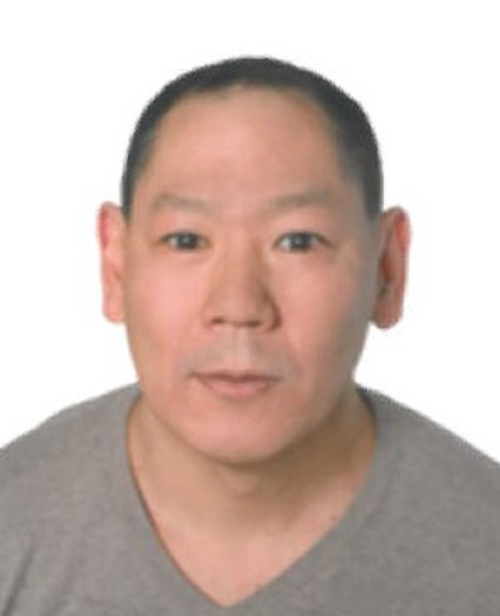
-
 C1. The role of governments and all stakeholders in the promotion of ICTs for development
C1. The role of governments and all stakeholders in the promotion of ICTs for development
-
 C2. Information and communication infrastructure
C2. Information and communication infrastructure
-
 C3. Access to information and knowledge
C3. Access to information and knowledge
-
 C4. Capacity building
C4. Capacity building
-
 C5. Building confidence and security in use of ICTs
C5. Building confidence and security in use of ICTs
-
 C6. Enabling environment
C6. Enabling environment
-
 C7. ICT applications: benefits in all aspects of life — E-government
C7. ICT applications: benefits in all aspects of life — E-government
-
 C7. ICT applications: benefits in all aspects of life — E-business
C7. ICT applications: benefits in all aspects of life — E-business
-
 C7. ICT applications: benefits in all aspects of life — E-learning
C7. ICT applications: benefits in all aspects of life — E-learning
-
 C7. ICT applications: benefits in all aspects of life — E-health
C7. ICT applications: benefits in all aspects of life — E-health
-
 C7. ICT applications: benefits in all aspects of life — E-employment
C7. ICT applications: benefits in all aspects of life — E-employment
-
 C7. ICT applications: benefits in all aspects of life — E-environment
C7. ICT applications: benefits in all aspects of life — E-environment
-
 C7. ICT applications: benefits in all aspects of life — E-agriculture
C7. ICT applications: benefits in all aspects of life — E-agriculture
-
 C7. ICT applications: benefits in all aspects of life — E-science
C7. ICT applications: benefits in all aspects of life — E-science
-
 C8. Cultural diversity and identity, linguistic diversity and local content
C8. Cultural diversity and identity, linguistic diversity and local content
-
 C9. Media
C9. Media
-
 C10. Ethical dimensions of the Information Society
C10. Ethical dimensions of the Information Society
-
 C11. International and regional cooperation
C11. International and regional cooperation
-
 Goal 1: End poverty in all its forms everywhere
Goal 1: End poverty in all its forms everywhere
-
 Goal 2: End hunger, achieve food security and improved nutrition and promote sustainable agriculture
Goal 2: End hunger, achieve food security and improved nutrition and promote sustainable agriculture
-
 Goal 3: Ensure healthy lives and promote well-being for all
Goal 3: Ensure healthy lives and promote well-being for all
-
 Goal 4: Ensure inclusive and equitable quality education and promote lifelong learning opportunities for all
Goal 4: Ensure inclusive and equitable quality education and promote lifelong learning opportunities for all
-
 Goal 5: Achieve gender equality and empower all women and girls
Goal 5: Achieve gender equality and empower all women and girls
-
 Goal 6: Ensure access to water and sanitation for all
Goal 6: Ensure access to water and sanitation for all
-
 Goal 7: Ensure access to affordable, reliable, sustainable and modern energy for all
Goal 7: Ensure access to affordable, reliable, sustainable and modern energy for all
-
 Goal 8: Promote inclusive and sustainable economic growth, employment and decent work for all
Goal 8: Promote inclusive and sustainable economic growth, employment and decent work for all
-
 Goal 9: Build resilient infrastructure, promote sustainable industrialization and foster innovation
Goal 9: Build resilient infrastructure, promote sustainable industrialization and foster innovation
-
 Goal 10: Reduce inequality within and among countries
Goal 10: Reduce inequality within and among countries
-
 Goal 11: Make cities inclusive, safe, resilient and sustainable
Goal 11: Make cities inclusive, safe, resilient and sustainable
-
 Goal 12: Ensure sustainable consumption and production patterns
Goal 12: Ensure sustainable consumption and production patterns
-
 Goal 13: Take urgent action to combat climate change and its impacts
Goal 13: Take urgent action to combat climate change and its impacts
-
 Goal 14: Conserve and sustainably use the oceans, seas and marine resources
Goal 14: Conserve and sustainably use the oceans, seas and marine resources
-
 Goal 15: Sustainably manage forests, combat desertification, halt and reverse land degradation, halt biodiversity loss
Goal 15: Sustainably manage forests, combat desertification, halt and reverse land degradation, halt biodiversity loss
-
 Goal 16: Promote just, peaceful and inclusive societies
Goal 16: Promote just, peaceful and inclusive societies
-
 Goal 17: Revitalize the global partnership for sustainable development
Goal 17: Revitalize the global partnership for sustainable development